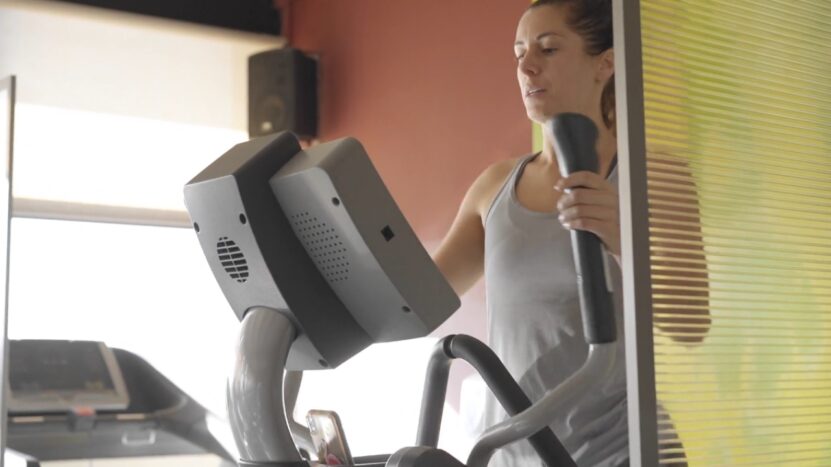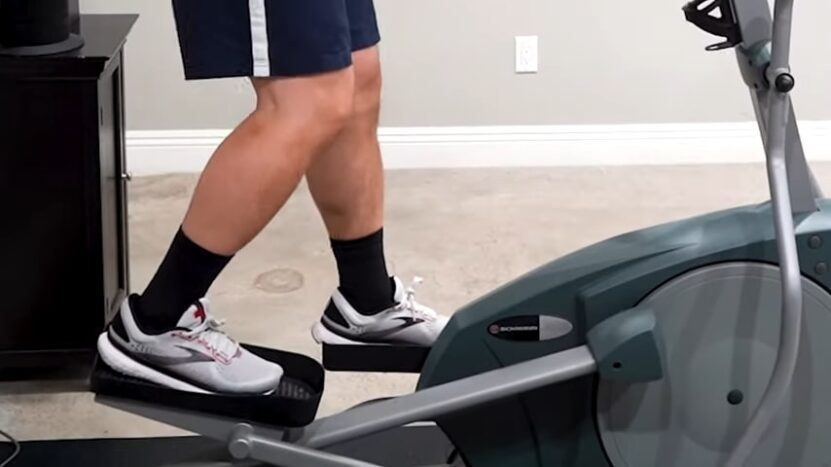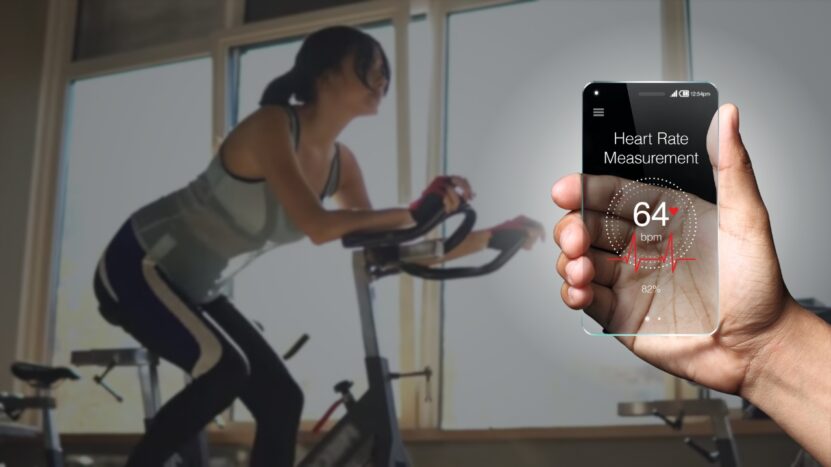Many people turn to the elliptical machine for a low-impact, full-body workout. However, some may experience excessive fatigue while using this equipment, hindering their ability to reach their fitness goals. In this guide, we will explore the various factors that contribute to fatigue on the elliptical, including improper form, lack of hydration, and inadequate nutrition.
We will also provide tips and techniques for overcoming this exhaustion, such as adjusting resistance levels and incorporating interval training. Whether you are a seasoned elliptical user or a beginner, understanding and overcoming fatigue on this machine can make a significant difference in your fitness journey. So, let’s dive in and explore the reasons behind your fatigue on the elliptical and learn how to overcome it for a more effective workout.
Understanding the Elliptical Machine
The Elliptical Machine is a great piece of exercise equipment to help you stay fit and healthy. It is a low-impact exercise machine that mimics the motions of walking and running, making it easier on your joints and muscles. But why do you get so tired on the Elliptical? Let’s take a look at the various factors that could be contributing to your fatigue.
Benefits of Using the Elliptical
Elliptical machines offer a low-impact cardio workout that benefits your physical and mental health in many ways. The machine provides a full-body workout, meaning it engages multiple muscle groups at once, making it very time-efficient. Here are some benefits of using an elliptical machine:
- Low-impact workout: The smooth gliding motion of the machine puts less stress on your joints, making it ideal for people with joint problems, injuries, or arthritis.
- Cardiovascular health: Using the elliptical helps improve heart and lung function, reduce blood pressure, and increase circulation.
- Muscle toning: The elliptical allows you to target a wide range of muscles, including your legs, glutes, core, and arms.
- Weight loss: The elliptical provides a high-calorie burning workout, which can help with weight loss.
- Mental health: Regular exercise on the elliptical can boost your mood, reduce stress and anxiety, and improve cognitive functions.
How the Elliptical Works
The elliptical machine operates through a flywheel mechanism, which relies on kinetic energy to provide resistance and control the motion of the pedals. As you push the pedals, the flywheel rotates, providing a smooth and continuous motion that simulates walking or running. The elliptical utilizes both the upper and lower body muscles, engaging your arms, legs, core, and back in a low-impact workout.
The reason why you may get tired on the elliptical is due to the intensity and duration of your workout, as well as the level of resistance and incline you choose. To make the most of your elliptical workout, start with low resistance and gradually increase it over time. Varying the resistance, incline, and speed throughout your workout can also help prevent boredom and challenge your muscles. Remember to stay hydrated and take breaks as needed.
Reasons for Fatigue on the Elliptical

Exercising on the elliptical can be a great way to increase cardiovascular fitness and burn calories, but it can also be a grueling and tiring experience. While it’s easy to attribute fatigue to a lack of physical fitness, there are a number of other factors that could be causing your fatigue on the elliptical. Let’s explore what could be causing your fatigue and ways to alleviate it.
Pushing Yourself Too Hard
Pushing yourself too hard on the elliptical can be a common cause of fatigue and exhaustion. It is essential to understand your physical limitations and gradually build your endurance over time to avoid burnout. Here are a few reasons why you might feel tired while using the elliptical:
Overexertion
Pushing yourself too hard on the elliptical can lead to exertion fatigue. This happens when the body’s energy production level cannot keep up with the intensity of the exercise.
Dehydration
When you sweat during your workout, your body loses water, which can result in dehydration leading to reduced blood flow to the muscles, causing fatigue.
Lack of Sleep
Inadequate sleep can cause fatigue, and you may feel more tired than usual during exercise.
Improper Nutrition
A well-balanced diet is essential to support your body’s energy needs. Consuming proper nutrients will help prevent fatigue, and your body will have the energy to complete your elliptical workout. Improper Form Improper form while using the elliptical trainer can be a major cause of fatigue during and after a workout. Here are some of the most common form mistakes to watch out for:
| Posture | Make sure you maintain an upright posture throughout your workout, with your shoulders back, and abs engaged. |
| Resistance | Start with a lower resistance level and gradually increase it as you get stronger and more comfortable on the machine. |
| Stride length | Taking strides that are too long or too short can cause extra strain on your knees and ankles, leading to fatigue. Make sure you take comfortable, natural strides while keeping your feet flat on the pedals. |
| Foot placement | Placing your feet too far forward or too far back on the pedals can cause undue stress and fatigue on your legs. Make sure you place your feet in the center of the pedals and keep your weight evenly distributed throughout your workout. |
By correcting these form mistakes, you can reduce fatigue and increase the effectiveness of your elliptical workout.
Incorrect Resistance Level
Having an incorrect resistance level on the elliptical machine can be a major reason for feeling fatigued quickly during your workout. Often people try to push themselves too hard, thinking that high resistance will result in faster calorie burn and better results. However, this is a misconception that can lead to exhaustion and reduced motivation to continue. To set the correct resistance level, follow these steps:
- Warm up on the elliptical for 5-10 minutes with light resistance.
- Determine your optimum resistance level by taking your age, weight, fitness level, and workout goals into consideration.
- Gradually increase resistance every few minutes, reaching your desired level by the midpoint of your workout.
- Maintain the intensity until you cool down.
Following this plan and distributing resistance levels appropriately will make for an easy and fluid workout, resulting in a much more pleasant experience.
Strategies for Preventing Fatigue on the Elliptical
Working out on the elliptical at the gym can be a great way to get some cardio exercise and work up a sweat. However, many people find that they become quickly fatigued and struggle to finish a session on the elliptical. In this section, we will explore some strategies for preventing fatigue on the elliptical and getting the most out of your workout.
Starting Slow and Gradually Increasing Intensity
When it comes to preventing fatigue on the elliptical machine, starting slow and gradually increasing intensity is a great strategy to keep your muscles from getting overworked and exhausted. Here are some tips you can follow:
- Start with a slow, steady pace for the first few minutes of your workout to warm up your muscles and prevent injury.
- Gradually increase the intensity of your workout by increasing the resistance, incline, or pace over time.
- Switch up your routine by trying different interval or hill workouts to prevent boredom and fatigue.
- Take breaks between workouts to give your muscles time to recover and prevent overuse injuries.
By following these strategies, you’ll be able to maintain your energy levels and prevent fatigue on the elliptical.
Maintaining Proper Form
Maintaining proper form on the elliptical can help prevent fatigue and discomfort during your workout. Here’s how to do it:
- Stand up straight with your feet flat on the pedals, and your knees in line with your hips.
- Keep your shoulders relaxed and your arms comfortably bent at your sides, moving the handles with your arm and not your upper body.
- Engage your core muscles and maintain a stable pelvis to prevent low back pain and discomfort.
- Keep your stride length short and avoid overextending your legs to prevent knee and hip strain.
Following these strategies can help prevent fatigue and discomfort during your elliptical workout, allowing you to exercise safely and get the most out of your workout.
Exercises to Supplement Your Elliptical Workout
If you are feeling tired while working out on the elliptical, then there are many supplemental exercises to help you get the most out of your workout. These exercises can help you build strength, endurance, and stamina, while also reducing injury risk. Let’s look at some of these supplemental exercises and how to incorporate them into your routine.
Strength Training Exercises to Improve Your Elliptical Stamina
If you’re experiencing fatigue while using the elliptical machine, incorporating strength training exercises into your workout routine can help you build endurance and stamina. Here are some strength training exercises you can do to supplement your elliptical workout:
| Squats: | This exercise targets the lower body muscles, including the glutes, quads, and hamstrings, which are involved in elliptical movements. |
| Lunges: | Lunges work the glutes, quads, and hamstrings, improving your power and endurance while sprinting on the elliptical. |
| Deadlifts: | Deadlifts target your core, lower back, and glutes, which are key muscles in maintaining good posture and balance on the elliptical. |
| Planks: | Planks are a great exercise to strengthen your core, which stabilizes your body while using the elliptical machine. |
By incorporating these strength training exercises into your workout routine, you can improve your elliptical stamina and get better results from your workouts. Pro Tip: Start with low weights and gradually increase resistance to avoid injury during your workout.
Stretching and Flexibility Exercises to Reduce Fatigue

One way to combat fatigue during and after an elliptical workout is to add stretching and flexibility exercises to your routine. These exercises increase blood flow to your muscles, reduce stiffness and soreness, and improve your overall performance. Here are some examples of stretching and flexibility exercises:
| 1) Quad Stretch | – Standing on one leg, grab the opposite ankle and hold for 15-30 seconds. Repeat with another leg. |
| 2) Hamstring Stretch | – Sitting on the floor with your legs straight, reaching your fingertips towards your toes, and holding for 15-30 seconds. |
| 3) Hip Flexor Stretch | – Kneel on one leg, with your opposite foot flat on the floor in front of you. Lean forward into your front leg until you feel a stretch in your hip flexor. Hold for 15-30 seconds and switch legs. |
By incorporating these exercises into your elliptical routine, you can reduce fatigue, improve your flexibility and mobility, and enhance your overall workout experience.
Cross-Training Activities to Improve Endurance
Cross-training can help improve your endurance and enhance your elliptical workout. These exercises help your body acclimate to new and varied exercises, prevent overuse injuries, and increase overall fitness. Here are some cross-training activities to supplement your elliptical workout:
| Activity | Benefits |
| Swimming | This low-impact exercise helps tone muscles, increase cardiovascular endurance and lung capacity, and improve flexibility and balance. |
| Cycling | Cycling is an excellent way to work out your lower body while building endurance and stamina. |
| Strength training | Strength training strengthens your muscles and bones, which can increase your endurance and resistance to injury. |
| HIIT | High-Intensity Interval Training (HIIT) combines short bursts of intense activity with periods of rest, leading to increased cardiovascular fitness and endurance. |
Combining these cross-training activities with your elliptical workout routine can add variety, challenge your body, and maximize the benefits of your workout.
FAQs

How can I track my heart rate to avoid fatigue on the elliptical?
You can use a heart rate monitor or the heart rate sensors on the elliptical machine to track your heart rate and adjust your workout intensity as needed.
Can stress cause fatigue on the elliptical?
Yes, stress can cause fatigue on the elliptical. Make sure to manage stress through techniques such as meditation, deep breathing, or yoga.
How can I prevent muscle fatigue on the elliptical?
To prevent muscle fatigue on the elliptical, make sure to warm up properly, stretch before and after your workout, and incorporate strength training exercises into your routine.
Can lack of sleep cause fatigue on the elliptical?
Yes, lack of sleep can cause fatigue on the elliptical. Make sure to get adequate sleep to ensure that your body is properly rested.
Can medications cause fatigue on the elliptical?
Yes, certain medications can cause fatigue on the elliptical. Make sure to consult with your doctor if you are experiencing excessive fatigue during exercise.
Can a lack of motivation cause fatigue on the elliptical?
Yes, a lack of motivation can cause fatigue on the elliptical. Try setting realistic goals, listening to music or podcasts, or working out with a friend to stay motivated during your workout.
Conclusion and Takeaways
In conclusion, feeling tired on the elliptical can have a variety of causes, such as dehydration, lack of sleep, and improper nutrition. However, it’s important to listen to your body and not push yourself too hard, as this can lead to injury and burnout. Instead, focus on maintaining a consistent pace, using proper form, and staying hydrated throughout your workout. Incorporating strength training and cross-training exercises can also help build endurance and prevent fatigue.
Lastly, make sure to fuel your body with enough carbohydrates, protein, and healthy fats to support your workout and help your muscles recover. By following these tips and taking care of your body, you can improve your stamina and feel more energized during your elliptical workouts.

